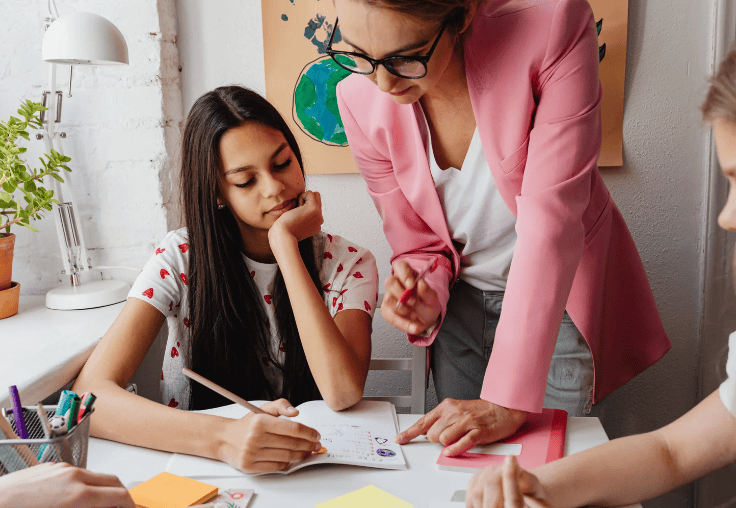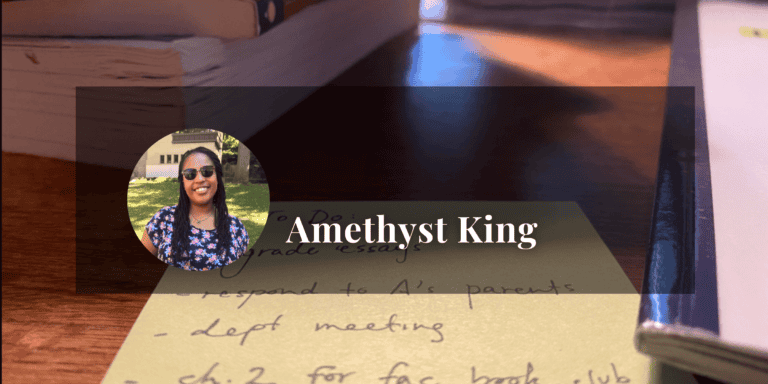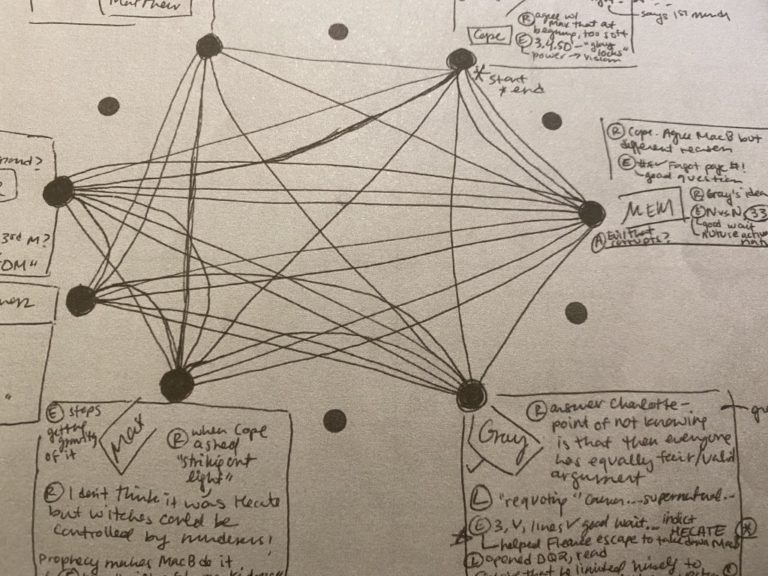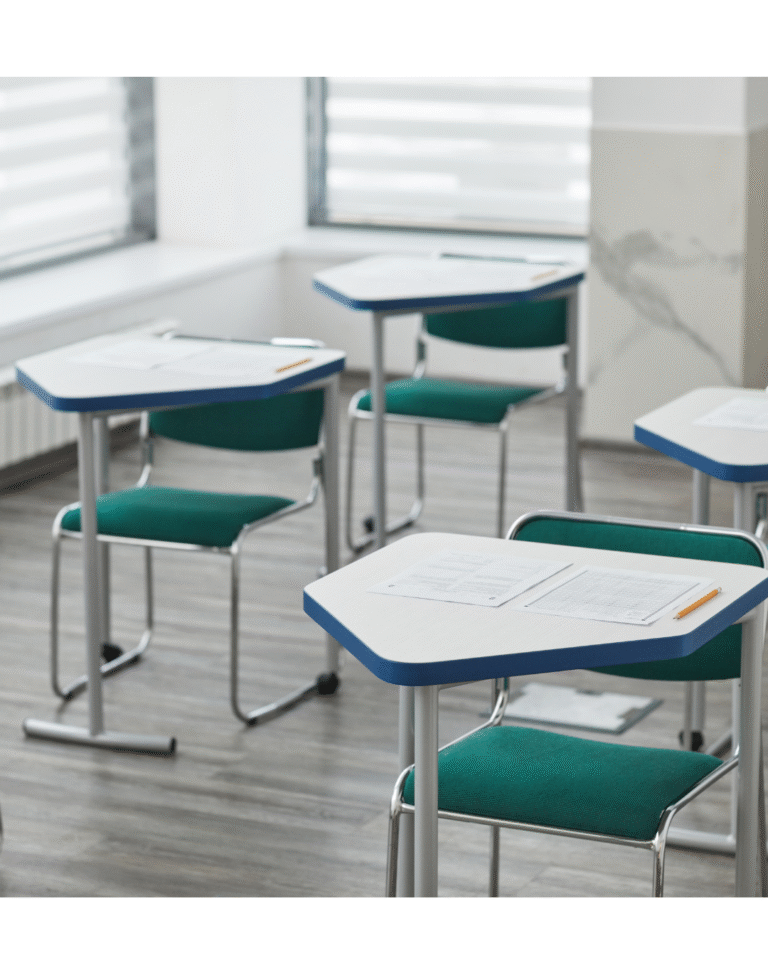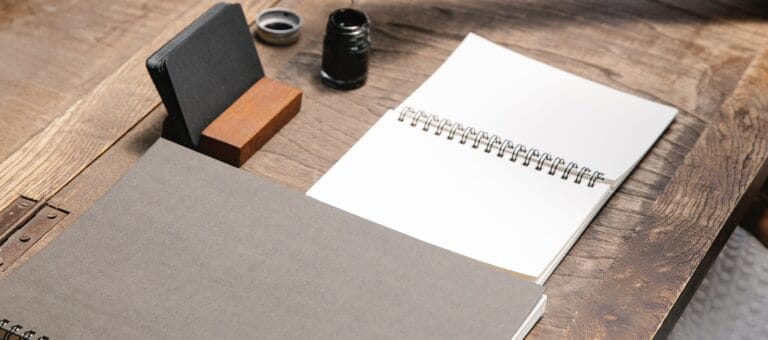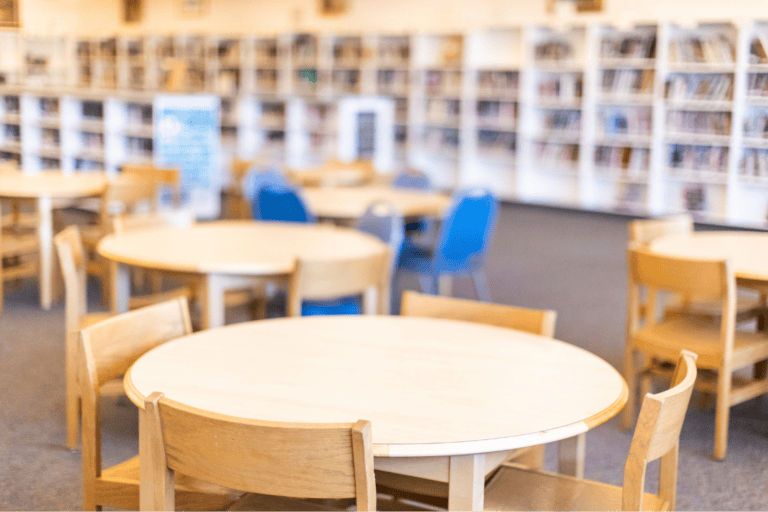R.E.A.L.® Teacher Feature: Hannah Higgin
Name: Hannah Higgin
Hometown: Wallingford, CT
Current School & Teaching Assignments: History Department Chair at the Westover School in Middlebury, CT.
Describe yourself as a student in three words:
Curious, studious, and engaged.
Who was your favorite teacher and why?

I loved my high school English teachers. Two who meant the most to me are still teaching, and I always think about how lucky their students are. David Loeb was my Freshman English teacher, and Megan Shea was my 11th or 12th grade English teacher. I also had transformative teachers in higher education. I took multiple classes with Dr. Stephen Tyre at St. Andrews, and I think he was the first teacher to show me that my thoughts and ideas were unique to me, and that I had something unique to contribute. That was huge, and as a teacher, that’s one of the things that’s most important to me – I’m trying to convey to each student that if they’re not here on a given day, it’s actually a huge loss to everybody in the class.
I’m trying to convey to each student that if they’re not here on a given day, it’s actually a huge loss to everybody in the class.
Hannah Higgin
The other teacher who was very important to me was my Master’s and PhD supervisor, Dr. Tony Badger, at Cambridge. His magic trick was that he would listen to what I wanted to do, then he would tell me to look up a certain book or person. As I learned more, I realized that he was actually being completely attentive to having me follow my own ideas – he just knew more than I did, so he was able to put me down the right path.
As a teacher, I really hope to be able to give students voice and choice and be able to send them further down their own paths.
When it comes to discussion, what is your “why?”
I really believe that every student has a unique perspective, and they add so much value to the class by sharing those perspectives. I want my class to be as rich an experience as possible, and that means every perspective needs to be shared.
I’m also someone who learns by talking things through. When done right, discussion actually helps you figure out what you think, and R.E.A.L.® supports that so beautifully. A lot of times, students hold themselves back because they’re afraid they’re going to get it wrong, or they’re afraid that they don’t know something yet. The act of discussion is how you figure out what you think.
When done right, discussion actually helps you figure out what you think, and R.E.A.L.® supports that so beautifully.
Hannah Higgin
Take us back to the first R.E.A.L.® Discussion you led – what were you worried about going in? What surprised you about it? What was the biggest success in that first discussion cycle?
I was nervous about letting go of the reins. It felt a bit scary to trust that the kids would be able to figure it out. As it turned out, though, the kids did great, and they learned from the things that didn’t go perfectly. One of the things that made me so glad that I did take the leap was, yes, this was not a perfectly smooth first couple of rounds, but as we practiced more, the growth that students were able to show because they were in the driver’s seat was really transformative.
Now that you’ve done this for a few years, what advice would you give to a teacher about to start their first R.E.A.L.® Discussion?
I think the biggest piece of advice is to trust the process. And also: take the time to set norms around discussion. Actually tell the kids that this might not be perfect. One of the suggested activities that I highly recommend is to talk with the students about the best and worst in-class conversations they’ve ever had. When you do that group brainstorm, first of all, you’re practicing that discussion piece already. And second, it really normalizes and defuses a lot of the fears. Again, it puts kids in the driver’s seat to ask them: what do you want to get out of this?
And one thing new teachers should definitely try is the “shout-outs” at the end. It’s amazing. It builds community. I’m always really touched by how students don’t just call out their friends. Often, students will shout out something I hadn’t even noticed. As soon as they name it, I realize they’re right – and it’s incredible.
How do you go about planning for a R.E.A.L.® Discussion?
I think it works really well when you’re able to use shorter texts, especially at the beginning. Keeping it tight so the students are able to be literally and figuratively on the same page as one another makes a big difference.
When you think about discussion, what are the top three learning goals you have for your students?
I think it depends. This is a tool that can be used for lots of different things. For instance, it can be a springboard for students to formulate their own questions. That’s something a lot of students struggle with, and I really try to center it as a skill and not something that comes naturally. It’s something you get good at with practice, and it’s actually really hard to figure out why you’re confused if you’re not good at formulating questions. I shared a Google Doc with all my students, and for homework, they put down three discussion questions based of their own based on the reading. As a class, we winnowed down the questions, and the students voted on the DQs they wanted to use in their own R.E.A.L.® Discussion. Again, that put the students in the driver’s seat.
I’ve been super impressed by what students can do when given the right scaffolding. It’s pretty dazzling.
I’ve been super impressed by what students can do when given the right scaffolding. It’s pretty dazzling.
Hannah Higgin
Can you think of a moment this year when a student had a breakthrough during a discussion?
Yes. There are lots of students I could talk about, but one comes to mind. I was blown away by the growth she showed. This was a student who described herself as not really ever having been taught how to study, how to do homework, these sorts of skills. We had a R.E.A.L.® discussion, and this student came in extremely well-prepared. She ended up putting together the most nuanced argument of everyone in her class, and as her classmates respectfully disagreed with her, she really stuck to her argument. I was so glad she did, because it showed that she had grown in her confidence. She did a beautiful job supporting all of her arguments with textual evidence. It was layer upon layer of skills, and to watch it fit into place was magic.
What is your go-to reward for finishing grading a huge pile of papers?
Oh my gosh. To be perfectly honest, I usually finish grading a huge stack of papers super early in the morning. So my prize to myself is to…go to work.
But honestly the prize is just the sigh of relief. No other great prize than the weight of the world being lifted from my shoulders.
What discussion challenges have you encountered? How do you approach them?
For me, the biggest challenge is students who are on the quieter side, or the students who maybe aren’t as well-prepared as they should be. Although, again, I would say that the students I worry the most about not being prepared are usually able to come in with something with this structure. Again, these supports, the scaffolding really help with those problem areas.
The other thing that can be tough is the students who really like to take up air time. And again, there are tools with R.E.A.L.® Discussion that help mitigate that.
These are the same sorts of problems you would get in any sort of classroom discussion or dynamic, but I feel like those problem areas are eased by these tools. The non-verbal cueing really helps. One thing that really helps is the hand signaling of how many times each student has spoken, and I really encourage students to make sure they’re definitely doing that.
What inspires you?
I’m a great lover of good stories. Personal experiences and unique details are the things I find most inspiring. I think we often make the mistake as writers or teachers or people participating in a discussion, where we take out the pieces that most speak to us in the name of making a point. And you actually make your point less compelling when you take out those unique pieces.
Personal experiences and unique details are the things I find most inspiring.
Hannah Higgin
What’s next for you in your class?
I’m so excited. I’m launching a new skills course this year called Historical Inquiry. The idea here is that the most important pieces are the scaffolded skills. So, discussion, with R.E.A.L.® at the center, writing, research – all those really critical skills. The units themselves can really become plug-and-play so we can follow student interest, because a goal of the ninth grade class is 1) to make sure students have foundational skills, and 2) to convey that history is a class for everyone. Often, when we get to survey courses, can lose the skills and those fun stories when you’re trying to march through and achieve certain endpoints. So I’m psyched to roll out this new course.
